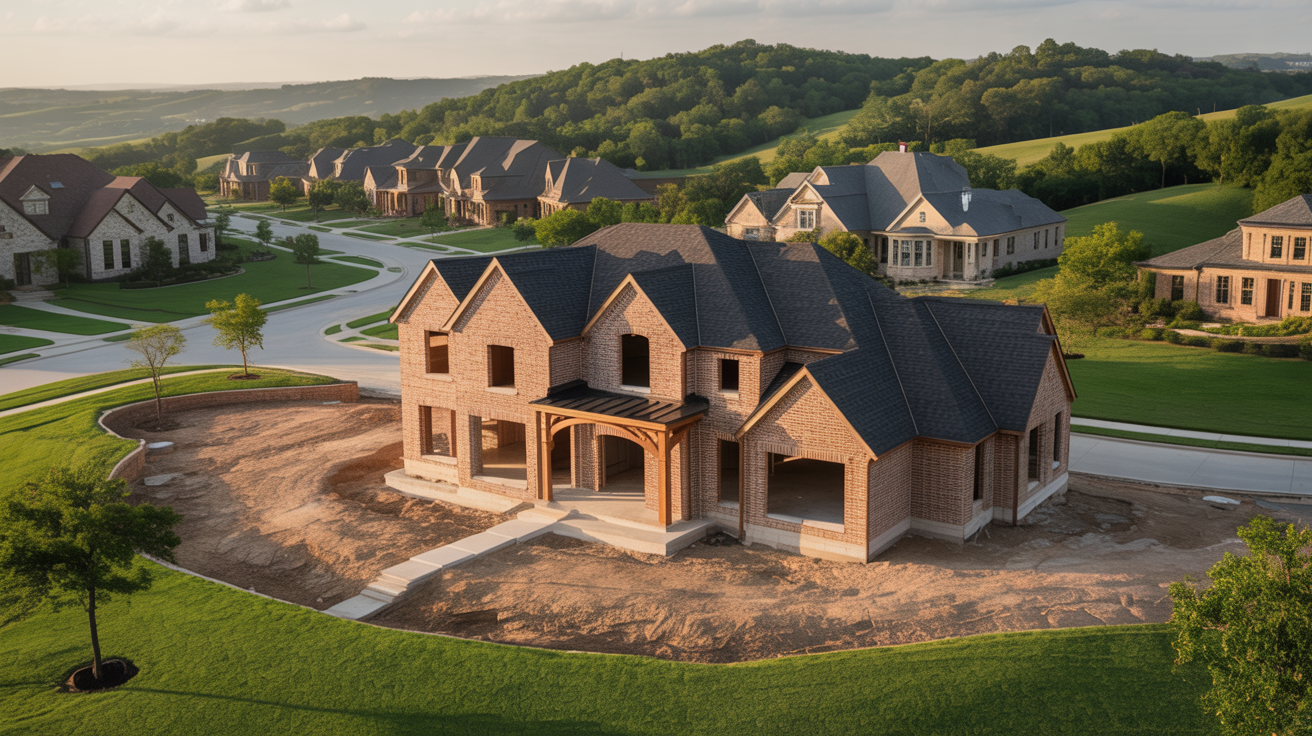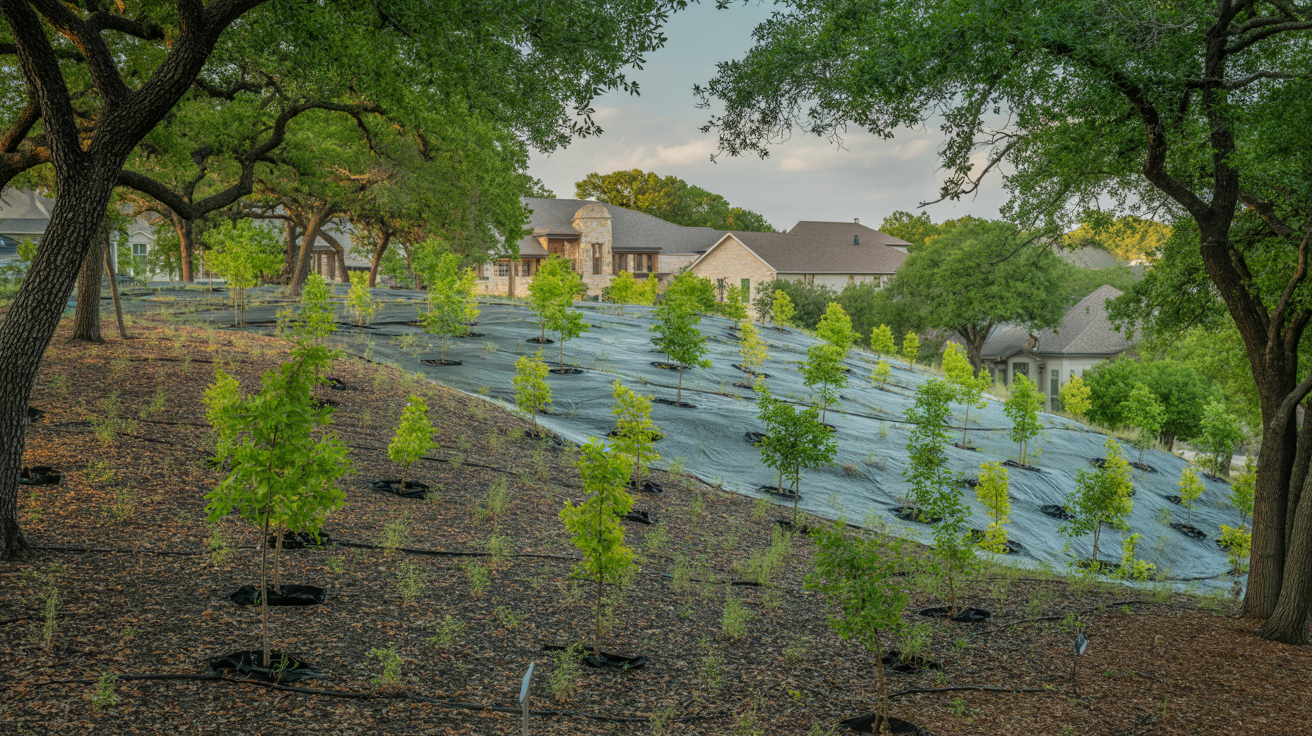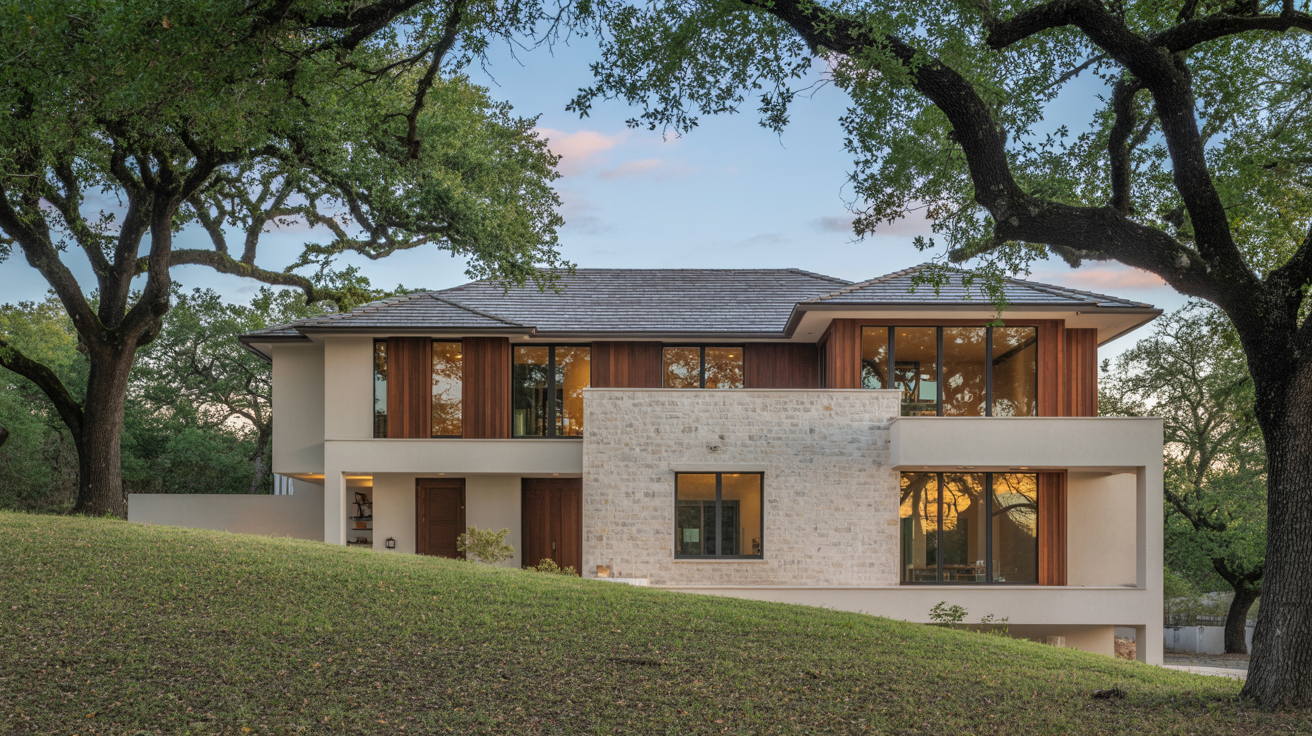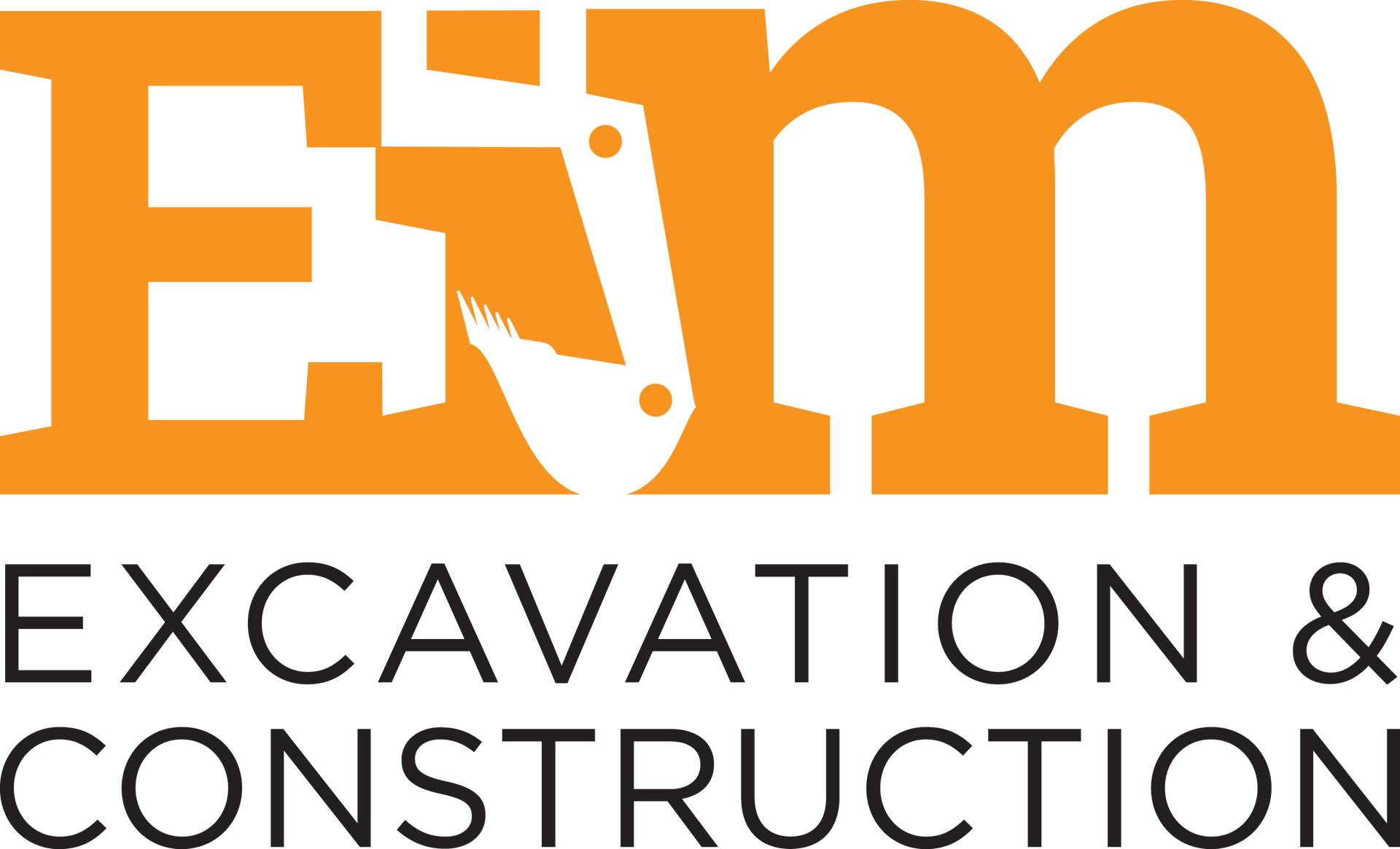Finding the Best Custom Home Builder in Bee Cave: Important Factors to Consider
Best Custom Home Builder in Bee Cave

When you're looking for the Best Custom Home Builder in Bee Cave, you need someone who understands both the unique challenges of Texas Hill Country terrain and the precision required to build homes that last generations. Over my 20 years in construction, I've learned that choosing the right builder isn't just about finding someone with tools and trucks—it's about finding a partner who can navigate the complexities of custom home construction while keeping your vision at the center of every decision.
I'm Chad Burnell, founder of Earth in Motion, Inc., and I've been solving construction challenges across diverse environments from the rugged landscapes of Colorado to the rolling hills of Central Texas. What I've discovered through decades of hands-on experience is that the best custom home builders don't just construct buildings—they solve problems that other contractors don't even see coming.
What Makes a Custom Home Builder Stand Out in Bee Cave
The Texas Hill Country presents unique construction challenges that separate experienced builders from those who are still learning on your dime. When I evaluate what makes someone the best choice for custom home construction in this area, I look at several critical factors that directly impact your project's success.
First, you need a builder who understands the geological complexities of the region. The limestone bedrock, varying soil conditions, and drainage patterns around Bee Cave require specialized knowledge that comes only from years of working in these specific conditions. During my time building custom solutions throughout Central Texas, I've encountered everything from underground springs that appear unexpectedly to rocky terrain that demands creative engineering approaches.
The elevation changes and natural water flow patterns in the Hill Country also create drainage challenges that inexperienced builders often overlook until it's too late. I've seen too many projects where poor site preparation led to foundation issues, water intrusion, or landscaping failures that could have been prevented with proper initial assessment and planning.
Experience Across Different Environments Matters
Your custom home builder should bring experience from multiple environments, not just local projects. My work in Colorado taught me how to handle extreme weather conditions, challenging terrain, and complex engineering requirements—skills that translate directly to the unique demands of Texas Hill Country construction.
When you're investing in a custom home, you want someone who has solved similar problems before. The rocky outcroppings common around Bee Cave require the same careful planning and specialized equipment I used for mountain construction projects. The difference is that I bring that mountain-building precision to every project, whether it's a lakefront property with complex drainage needs or a hilltop home that requires careful foundation work on limestone bedrock.
The Custom Home Building Process That Actually Works
Too many custom home projects fail because the builder doesn't have a systematic approach to managing the complexities involved. After two decades in construction, I've developed a process that keeps projects on track while maintaining the flexibility needed for true customization.
The foundation of successful custom home building starts with comprehensive site analysis. Before we talk about floor plans or finishes, I spend time understanding your land. This means analyzing soil conditions, drainage patterns, utility access, and environmental factors that will impact both construction and long-term home performance.
Site Preparation and Engineering Solutions
Every custom home in Bee Cave starts with proper site preparation, and this is where many projects either succeed or struggle. The Hill Country's limestone bedrock often requires specialized excavation techniques and careful planning for utilities and drainage systems.
I approach each site as a unique engineering challenge. The same skills I used to build in Colorado's challenging mountain terrain—understanding water flow, soil stability, and environmental impact—apply directly to navigating Bee Cave's geological complexities. Whether you're dealing with steep slopes, rocky outcroppings, or existing vegetation you want to preserve, the key is developing solutions that work with the natural environment rather than fighting against it.
Your custom home builder should also understand how site conditions affect long-term maintenance and performance. The decisions made during site preparation impact everything from your home's energy efficiency to how well your landscaping will thrive years after construction is complete.
Design Integration and Problem-Solving
True custom home building means integrating your vision with practical solutions that address site-specific challenges. This requires a builder who can think creatively about engineering problems while keeping your lifestyle needs and aesthetic preferences at the forefront.
I've found that the most successful custom homes result from ongoing collaboration between the homeowner and builder throughout the design process. This isn't about presenting you with pre-designed options—it's about developing solutions that are uniquely suited to both your needs and your specific piece of land.
Understanding Pricing Factors in Custom Home Construction
One of the biggest challenges homeowners face when selecting a custom home builder is understanding what drives project costs. Rather than focusing on simple per-square-foot estimates, you need to understand the factors that actually impact your investment.
Site conditions play a major role in determining construction costs. A level lot with easy utility access will require different preparation work than a sloped site with challenging drainage patterns. The geological conditions common around Bee Cave—particularly the limestone bedrock—can require specialized excavation equipment and techniques that affect project budgets.
Material Selection and Long-Term Value
Your choice of materials impacts both initial construction costs and long-term home performance. The climate conditions in Central Texas—including intense summer heat, occasional severe weather, and high humidity—require materials that can handle these environmental stresses while maintaining their appearance and structural integrity.
I always recommend focusing on materials and systems that provide long-term value rather than just initial cost savings. Energy-efficient building techniques, quality insulation, and durable exterior materials cost more upfront but deliver significant savings over the life of your home. This is particularly important in the Texas climate, where cooling costs can be substantial if your home isn't built with energy efficiency in mind.
The key is working with a builder who can explain how different material choices affect both your initial investment and ongoing operating costs. This requires experience with how different products perform in Texas conditions over time.
Customization Complexity and Engineering Requirements
The level of customization you desire directly affects project complexity and cost. Simple modifications to standard designs require less engineering and planning than completely custom solutions, but both can be executed successfully with proper management.
What many homeowners don't realize is that certain customizations require specialized engineering or structural modifications that ripple through other aspects of the project. An experienced builder can help you understand these connections and make informed decisions about where to invest in customization for maximum impact.
Navigating Environmental and Regulatory Challenges
Building in Bee Cave means working within local regulations, HOA requirements, and environmental considerations that vary significantly from one lot to another. Your custom home builder needs to understand these complexities and help you navigate them efficiently.
The Hill Country's environmental sensitivity requires careful attention to erosion control, tree preservation, and water management during construction. These aren't just regulatory requirements—they're essential for protecting your property's long-term value and environmental sustainability.
Drainage and Water Management Solutions
Water management is critical in Hill Country construction, both for protecting your home's foundation and for managing stormwater runoff in compliance with local regulations. The natural drainage patterns and rocky terrain around Bee Cave require specialized approaches that many builders don't fully understand.
Through my experience building in various challenging environments, I've developed expertise in creating effective drainage solutions that work with natural water flow patterns rather than disrupting them. This includes everything from foundation drainage systems to landscape grading that prevents erosion while maintaining the natural beauty of your property.
Your builder should also understand how water management decisions made during construction affect your property's long-term maintenance requirements and environmental impact.
Quality Control and Project Management
Successful custom home construction requires systematic quality control and project management throughout the building process. This means having systems in place to catch potential issues before they become expensive problems and maintaining clear communication with all stakeholders.
My military background taught me the importance of attention to detail and systematic processes in complex projects. These same principles apply directly to custom home construction, where small oversights can have significant consequences down the line.
Communication and Transparency
Your custom home builder should provide regular updates on project progress, potential challenges, and any decisions that need your input. This isn't just about courtesy—it's about ensuring that your vision is being executed correctly and that you have the information needed to make informed decisions throughout the construction process.
I believe in maintaining open communication channels that allow homeowners to stay informed without being overwhelmed by construction details. This means providing updates at key milestones, explaining any changes or challenges that arise, and ensuring that you understand the implications of various decisions before they're implemented.
Problem-Solving During Construction
Even with careful planning, custom home construction often presents unexpected challenges that require creative solutions. Your builder's ability to solve these problems efficiently while maintaining quality standards can make the difference between a successful project and a frustrating experience.
My approach to problem-solving draws on experience from multiple challenging environments and construction types. When unexpected issues arise—whether it's encountering an underground spring, dealing with utility complications, or adapting to changes in your needs—I focus on developing solutions that maintain project quality while minimizing delays and cost impacts.
Long-Term Performance and Maintenance Considerations
The best custom home builders don't just focus on construction completion—they consider how your home will perform and age over time. This means making decisions during construction that support long-term durability, energy efficiency, and maintenance ease.
Texas Hill Country conditions can be demanding on building materials and systems. The intense summer heat, occasional severe weather, and high humidity levels require building approaches that account for these environmental stresses. Your builder should understand how these conditions affect different materials and systems over time.
Energy Efficiency and Sustainability
Building energy-efficient homes isn't just about environmental responsibility—it's about creating comfortable living spaces that don't cost a fortune to operate. The extreme temperature variations common in Central Texas make energy efficiency particularly important for long-term affordability.
Through my experience with green building techniques and sustainable construction practices, I've learned how to integrate energy-efficient systems and materials without compromising on design flexibility or construction quality. This includes everything from advanced insulation techniques to smart system integration that reduces energy consumption while improving comfort.
Your custom home builder should be able to explain how different efficiency measures affect both your initial investment and ongoing operating costs, helping you make informed decisions about where to invest for maximum long-term benefit.
Finding Your Custom Home Building Partner
Choosing a custom home builder is ultimately about finding someone who can translate your vision into reality while managing the complexities that inevitably arise during construction. This requires more than just construction skills—it requires problem-solving ability, clear communication, and a commitment to quality that extends beyond project completion.
My experience as a Service-Disabled Veteran-Owned Small Business gives me a unique perspective on the importance of reliability, attention to detail, and following through on commitments. These values, combined with 20 years of hands-on construction experience across diverse environments, allow me to approach each custom home project with the expertise and dedication it deserves.
Whether you're planning a lakefront retreat, a hilltop sanctuary, or a custom home that takes advantage of Bee Cave's unique Hill Country setting, the key is working with someone who understands both the technical challenges and the personal significance of your project.
When you're ready to move forward with your custom home project, remember that the right builder brings together technical expertise, problem-solving ability, and a commitment to quality that ensures your investment delivers lasting value. That's what it takes to be the Best Custom Home Builder in Bee Cave.
Frequently Asked Questions About Custom Home Building in Bee Cave
What makes Earth in Motion different from other custom home builders in the Bee Cave area?
My 20 years of construction experience across diverse environments, from Colorado's rugged mountains to Central Texas Hill Country, gives me unique problem-solving abilities that other builders simply don't possess. As Chad Burnell, founder of Earth in Motion, I bring specialized expertise in handling the geological complexities of Bee Cave's limestone bedrock, challenging drainage patterns, and elevation changes. My military background ensures systematic attention to detail and reliable project management, while my Service-Disabled Veteran-Owned Small Business status reflects my commitment to following through on every promise. I don't just build homes—I solve complex engineering challenges that other contractors often overlook until costly problems arise.
How do you handle the unique terrain and geological challenges around Bee Cave?
The Texas Hill Country's limestone bedrock, underground springs, and natural drainage patterns require specialized knowledge that I've developed through decades of working in challenging environments. I approach each site as a unique engineering problem, using the same precision I applied to mountain construction projects in Colorado. Before discussing floor plans, I conduct comprehensive site analysis to understand soil conditions, water flow patterns, and environmental factors. My experience with rocky terrain, steep slopes, and complex drainage solutions allows me to develop construction approaches that work with the natural environment rather than fighting against it, preventing foundation issues and water intrusion problems that plague poorly planned projects.
What factors influence the cost of building a custom home in Bee Cave?
Several key factors drive custom home construction costs in the Hill Country. Site conditions play a major role—limestone bedrock excavation, challenging drainage patterns, and steep slopes require specialized equipment and techniques that affect budgets. The level of customization complexity directly impacts engineering requirements and construction time. Material selection significantly influences both initial costs and long-term value, particularly given Central Texas climate demands for energy efficiency and durability. I focus on helping clients understand how different choices affect both upfront investment and ongoing operating costs, especially important in Texas where cooling expenses can be substantial without proper energy-efficient building techniques. Environmental compliance, drainage solutions, and local regulatory requirements also contribute to project complexity and associated costs.
How do you ensure quality control and communication throughout the construction process?
My systematic approach to quality control draws from military training and 20 years of construction experience managing complex projects. I maintain regular communication at key milestones, explaining any challenges that arise and ensuring you understand the implications of various decisions before implementation. My process includes comprehensive documentation, systematic inspections at critical stages, and proactive problem-solving when unexpected issues emerge. I believe in transparency without overwhelming clients with unnecessary construction details. When complications arise—whether encountering underground springs, utility challenges, or design modifications—I focus on developing solutions that maintain quality standards while minimizing delays and cost impacts. This systematic approach ensures your vision is executed correctly while keeping you informed throughout the entire construction process.
Can you help with lot selection and site evaluation in the Bee Cave area?
Absolutely. My extensive experience with Hill Country terrain makes me uniquely qualified to help evaluate potential lots for custom home construction. I analyze critical factors including soil conditions, drainage patterns, utility access, environmental constraints, and geological challenges specific to each property. Having worked with everything from lakefront properties with complex water management needs to hilltop sites requiring specialized foundation work on limestone bedrock, I can identify both opportunities and potential complications before you make a land purchase. I evaluate how site conditions will affect construction costs, design possibilities, and long-term home performance. My assessment includes understanding natural water flow, existing vegetation preservation options, HOA requirements, and local regulatory considerations that impact your building plans and investment value.



